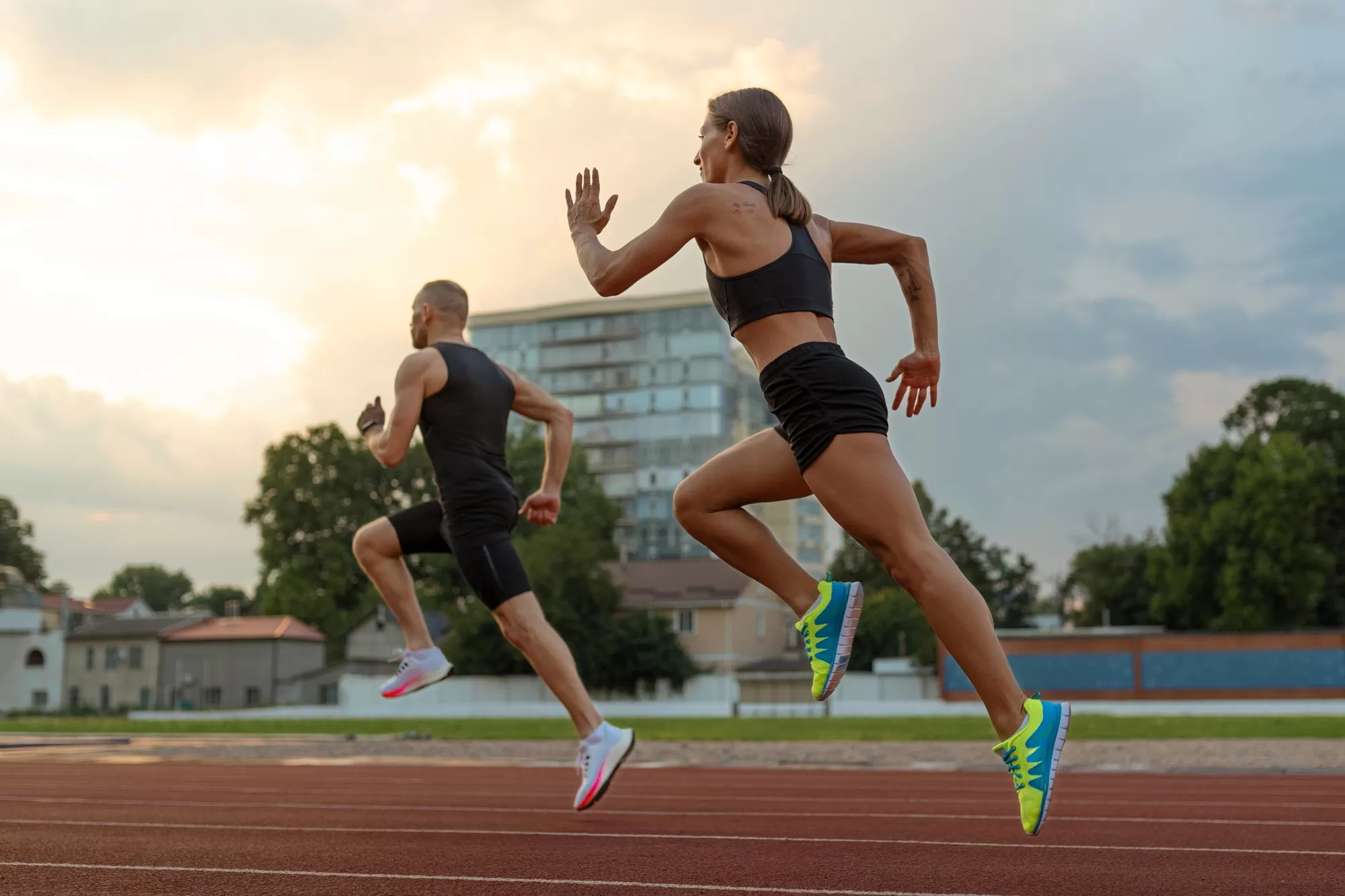Every competitive athlete understands the important role that nutrition plays in helping their body recover after a tough match or competition, but few athletes are aware of how important the gut microbiome is for recovery.
Macronutrient consumption (protein, fat, and carbohydrates) is a key pillar of athletic nutrition. Ensuring adequate macronutrient intake is critical for performance, but also for recovery optimization which is also necessary to sustainably perform at your best. The gut microbiome most directly influences recovery via regulation of inflammation, improving sleep, and improving absorption of nutrients – after all, what good is a nutritious diet if you fail to efficiently absorb the nutrients!

1) Inflammation regulation
The production of short-chain fatty acids (SCFAs) by gut bacteria has an effect globally in the body of managing inflammation. Some types of bacteria in your gut will consume prebiotic foods, and as a result, produce SCFAs which act locally in the gut, but also enter the bloodstream to move globally around the body! These SCFAs decrease the activity of immune cells which are responsible for pro-inflammatory processes, and thus, decrease the inflammation which may be present following a strenuous athletic performance¹. If an athlete can quickly recover physically and decrease inflammation, they are enabled to train more frequently and at a greater intensity than otherwise!
2) Sleep quality
For athletes, there are few things more frustrating than injuries or illness. The evidence supporting the importance of sleep for athletes is overwhelming, but how can the gut microbiome improve sleep? There is a strong relationship between sleep quality/duration and gut microbiome diversity, and crucially, greater gut microbiome diversity is associated with proper regulation of interleukin-6 – a cytokine associated with sleep². Additionally, the neurotransmitter synthesis of serotonin and GABA in the gut is also an important contributor to sleep regulation – it’s worthy of noting that 95% of the body’s serotonin is produced in the gut³! Improvement in sleep quality is associated with increased athletic performance, decreased susceptibility to sports injuries and the common cold ⁴,⁵,⁶.
3) Nutrient absorption
A healthy diet ensures an athlete has a foundation to become stronger and helps repair the body following competition. From the endogenous bacterial synthesis of vitamins and neurotransmitters in the gut, to aiding in the metabolism of ingested foods and increasing the efficiency of nutrient absorption – the gut microbiome plays an influential role in nutrition⁷. An increase in the efficiency of micronutrient absorption means that you can get more value for the foods you are consuming.
4) Increased endurance
As an athlete’s muscles begin to feel fatigued after a period of high exertion, the presence of lactate accumulates near the working muscles. A genus of bacteria called, Veillonella, has been identified as being of great interest due to its function of metabolizing lactate and producing the two SCFAs, propionate and acetate⁸. Numerous experiments have identified an increased gut microbiome abundance of Veillonella in athletes during post- versus pre- exercise, and fascinatingly, there is evidence that increased Veillonella abundance can increase endurance⁹! A pre-clinical study identified that Veillonella inoculated mice experienced a 13% improvement in endurance and a decreased presence of inflammatory cytokines compared to the control group⁹.
Given the benefits of optimizing recovery and performance, athletes performing at the top-level cannot afford to neglect what the gut microbiome is offering in the form of performance-support!¹
References:
1) Yao, Y., Cai, X., Fei, W., Ye, Y., Zhao, M., & Zheng, C. (2022). The role of short-chain fatty acids in immunity, inflammation and metabolism. Critical reviews in food science and nutrition, 62(1), 1–12. https://doi.org/10.1080/10408398.2020.1854675
2) Smith, R. P., Easson, C., Lyle, S. M., Kapoor, R., Donnelly, C. P., Davidson, E. J., Parikh, E., Lopez, J. V., & Tartar, J. L. (2019). Gut microbiome diversity is associated with sleep physiology in humans. PloS one, 14(10), e0222394.
https://doi.org/10.1371/journal.pone.0222394
3) Appleton J. (2018). The Gut-Brain Axis: Influence of Microbiota on Mood and Mental Health. Integrative medicine (Encinitas, Calif.), 17(4), 28–32.
4) Vitale, K. C., Owens, R., Hopkins, S. R., & Malhotra, A. (2019). Sleep Hygiene for Optimizing Recovery in Athletes: Review and Recommendations. International journal of sports medicine, 40(8), 535–543. https://doi.org/10.1055/a-0905-3103
5) Milewski, M. D., Skaggs, D. L., Bishop, G. A., Pace, J. L., Ibrahim, D. A., Wren, T. A., & Barzdukas, A. (2014). Chronic lack of sleep is associated with increased sports injuriesin adolescent athletes. Journal of pediatric orthopedics, 34(2), 129–133.
https://doi.org/10.1097/BPO.0000000000000151
6) Prather, A. A., Janicki-Deverts, D., Hall, M. H., & Cohen, S. (2015). Behaviorally Assessed Sleep and Susceptibility to the Common Cold. Sleep, 38(9), 1353–1359.
https://doi.org/10.5665/sleep.4968
7) Barone, M., D’Amico, F., Brigidi, P., & Turroni, S. (2022). Gut microbiome-micronutrient interaction: The key to controlling the bioavailability of minerals and vitamins?. BioFactors (Oxford, England), 48(2), 307–314.
https://doi.org/10.1002/biof.1835
8) Ng, S. K., & Hamilton, I. R. (1973). Carbon dioxide fixation by Veillonella parvula M4 and its relation to propionic acid formation. Canadian Journal of Microbiology, 19(6),
715-723
9) Scheiman, J., Luber, J. M., Chavkin, T. A., MacDonald, T., Tung, A., Pham, L. D., … & Kostic, A. D. (2019). Meta-omics analysis of elite athletes identifies a performance-enhancing microbe that functions via lactate metabolism. Nature medicine, 25(7), 1104-
1109.